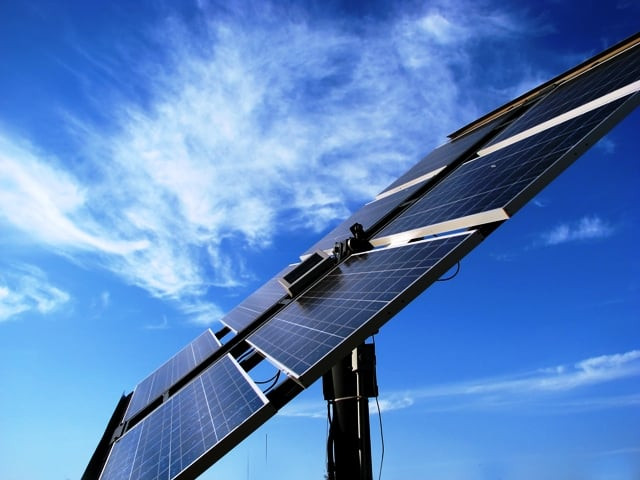Energy mix: PEC sets up on-grid solar power generation project
The excess electricity will be delivered to the national grid under a Feed-In-Tariff regime.

The Pakistan Council of Renewable Energy Technologies (PCRET) has initiated production of high quality solar panels. PHOTO: FILE
The Pakistan Engineering Council has set up an on-grid solar power generation project with a capacity of 178 KiloWatts (KW), setting precedence as a role model for defining procedures and strategy at the national level for on-grid solar power generation.
This project is first of its kind in the country. The excess electricity will be delivered to the national grid under a Feed-In-Tariff regime.
An official said the government plans to illuminate 250 houses with solar panels in rural areas. The Pakistan Council of Renewable Energy Technologies (PCRET) has initiated production of high quality solar panels. This will help promote clean and renewable energy sources.
Published in The Express Tribune, July 25th, 2013.
Like Business on Facebook, follow @TribuneBiz on Twitter to stay informed and join in the conversation.



















COMMENTS
Comments are moderated and generally will be posted if they are on-topic and not abusive.
For more information, please see our Comments FAQ